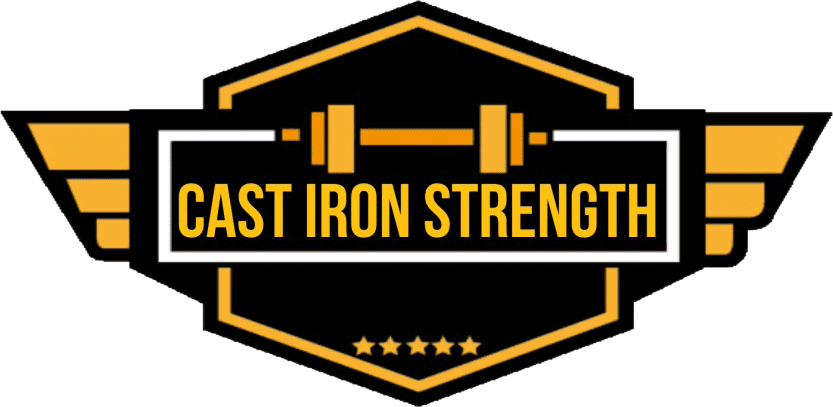1 – Set out a plan for 2020!
Although a long term detailed plan can be a lot of wasted effort having a broad-strokes plan (competitions, training focus, time off) included in the year can really help you to knuckle down and pick the spots in the year that are going to be important and what you can work on during the upcoming 12 months.
For me, I always use competitions as my base for planning. I will decide on what I want to achieve in terms of competitions and then use those to layout a natural flow to my training calendar.
Periods, where there aren’t a lot of in the way of competitions, can be used to focus on weakness or to work on general competencies. Periods at the back end of competitions can be used for recovery and de-training and periods leading into competitions can be used to push yourself and progress.
2 – Start videoing your working sets
Pretty much everyone now in this day and age has a smartphone with a camera on it. It still baffles me the lack of people who video themselves lifting (no you don’t have to put it on Instagram, I mean you can if you want obviously).
Feedback from sets is one of the quickest ways for you to develop your learning and to become better as a lifter. Some people will learn best by feeling their way through sets. For some, they will learn best from verbal feedback after sets. Others will learn best from viewing their own and the performances of others both successful and unsuccessful.
Some gyms have banned videoing from their facility so you will need to check if it’s okay before you start doing so. My advice would be if your gym doesn’t allow you to video your training is to find a new gym.

3 – Go see a physio and get a prehab/basic conditioning plan set up
You don’t need to just see a physio when you eventually end up in snap city. You can be proactive and see one so you can come up with a personalized conditioning plan to help you be more robust so you can train harder and not break in the process.
An example would be me. I have been suffering from shoulder pain for about 13 years after I suffered a pretty bad shoulder injury in 2006/2007. I have seen a number of physios over the years and not really had a satisfactory answer. It was only after seeing our own physio Ali who is a good level lifter that I got an answer and a plan that seems to be working. I have weak rotator cuffs so I have been given a range of motion-based exercises to make sure they aren’t getting overloaded from squatting and some basic conditioning work to do to make sure they are strong enough to stand up to a hard training routine.
Lifter’s injuries will typically come from either
- Being poorly conditioned
- Poor technique
- Poor programming
The incidence of acute injury in lifting is very low so the above probably covers most of the injuries you will suffer from. Seeing a physio can help you to pick out where you are weak and get a plan to bring it up to a better level.
4 – Split your training into periods of muscle growth and strength gain.
It’s not the only way of splitting up training but it does work and it does work cyclically (as in it works repeatably). Having periods of training be it a block of 4, 8, 12 or 16 weeks where you only really focus on developing your movement quality (technique) and your muscle size (focusing on the volume and volume load) can really help you to get progressively stronger over time.
One of the major limiting factors when it comes to gaining strength is the cross-sectional area of a muscle (read it’s size) so spending time to focus on building up the muscles involved in the movements you want to eventually get stronger at is usually time well spent.
It is also a good time for you to develop your technique as the higher training volume and reduced need for training specificity allows you to go towards specific exercises and movements that will carry over to your main competition lifts and gives you plenty of practice to develop your skill.
For instance if you have poor balance and control at the bottom of the squat front squats with a controlled tempo will really help you to become more aware of your balance and positioning during a squat. You will really feel the benefit of this when you move onto competition squat variations.
5 – Seek out a decent coach even if only for a single one to one session.
When it comes to practice and training a lot of the progress you make is through feedback and acting on that feedback. Deliberate practice means you need to train out of your comfort zone, appraise your performance and enact changes based on analysis of your own practice to work at being more efficient.
A coach supercharges this process there is only so much you can pick up on as a lifter. You aren’t going to be as experienced as someone who does it as a job for one, you won’t have the same skillset and you are riddled with your own self-bias and probably kid yourself on and aren’t straight with yourself and what you need to do.
Spending some time with a coach even if only for a feedback session can give you some valuable feedback to work with and give you some avenues you can explore in your own time.
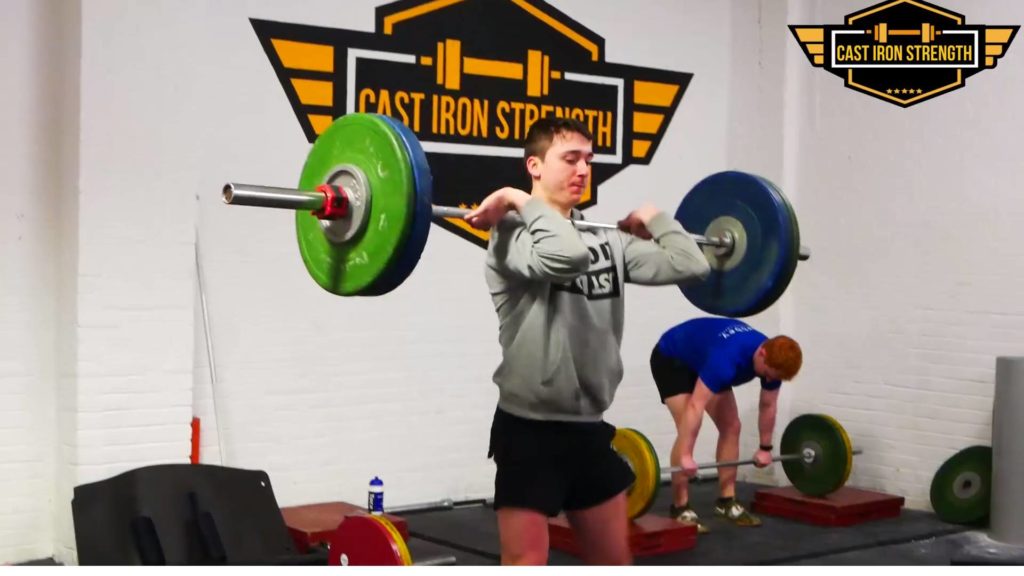
6 – Try and find a club or like-minded training groups/partners.
Most clubs will have a coach and training partners can really be invaluable for feedback even if it is to say you did this thing and not providing you with solutions. The first step to remedying a problem is acknowledging the problem. Training with other lifters especially if they are better than you can really help to tear down mental barriers.
In some gyms a 140kg squat is going to be a huge squat, most people will probably have never seen that on a bar before and before you know it you are the big swinging dick in the room. In some gyms, 140kg isn’t a respectable bench press never mind squat.
Training in an environment set up for the sort of training you want to do, with training partners who are like-minded and motivated with a coach really can make a fuck tonne of difference to your own performance.
7 – Schedule in your training times
I haven’t got time is the biggest bull shit excuse I think I ever hear from people. You do have time, we all have the same amount of time 24 hours in a day. How we spend our time is down to our preferences and priorities.
If you want to make your training a priority then schedule that time in. Got a young family or need to be in work early. Well then train when your kids are in bed or go to training before work even starts. If you want to do it you will make time. If you intend on doing it make sure you make the time.
When I organise my week I always block off time for training first, then coaching because those are my priorities in the week.
8 – Block off rest days
Just as you need to make time for training you also need to make time for rest. Exercise is stress as we have discussed so many times on this blog. It isn’t the stress that makes you better (it isn’t the exercise that makes you better) it is your body adapting to the stress you have put on it (you recovering and getting fitter after the exercise) that makes you better. The better your nutrition and sleep are the better you will adapt.
Likewise, you need time to unwind mentally and physically from training so you need to schedule in days where you don’t do any sports training. You can do some light activities like walking, yoga, swimming or biking if you want to stay active but you shouldn’t be doing extra weight training as it is only adding in more stress to your week.
As much as I can I always take Sunday off from any exercise that isn’t walking and stay out of gyms. I find this habit is pretty essential in keeping me engaged mentally more than physically in both training and coaching.
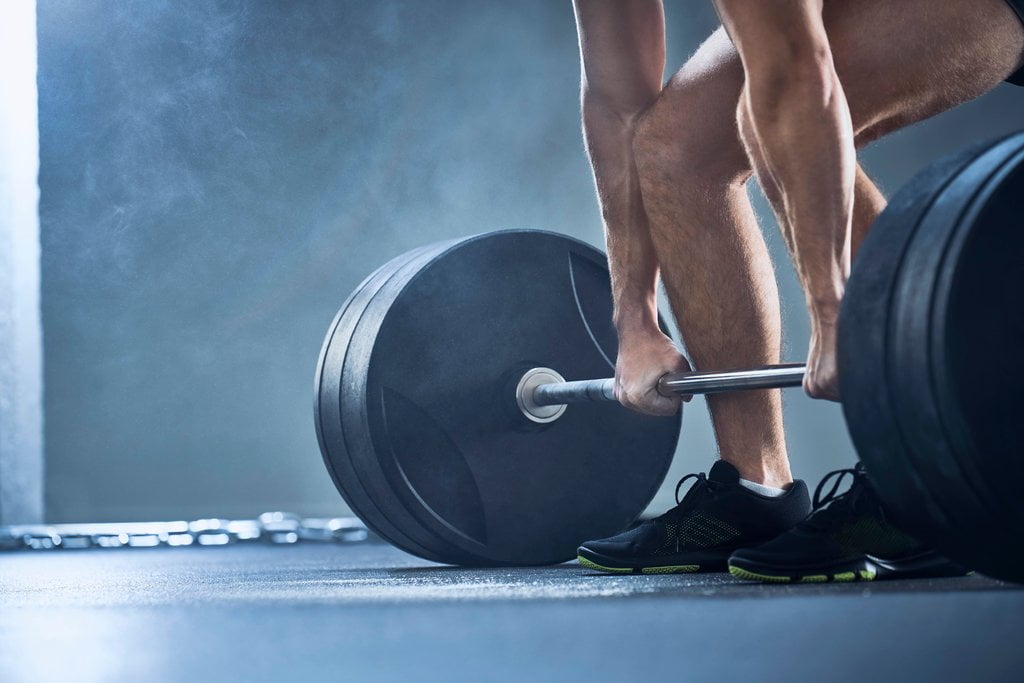
9 – Be more mindful during your training sessions
As discussed briefly above you need to be engaged in your practice for it to be of benefit. This is one of the main components of deliberate practice is to be present and mindful of what you are trying to do. There are a few elements to this.
You must understand what you are trying to achieve first. For you to be able to execute a technique you first of all must understand conceptually what that technique is and what the various elements of the technique are. This can be referred to as your technical model (a term I don’t really like) think of it as your mind’s eye view of what the movement is or your own personal checklist of what perfect execution on this movement looks like.
You need to be paying attention to the feedback around you during the movement you need to be present in the moment. Where is your balance on your food, do you feel tight? Where is the bar? Where are you relative to the bar? Where is the pressure? Where is your eyesight? What can you hear and what can you feel. Take it in as you move and use the feedback you are getting to try and enact changes on the fly. Feel like you are rolling onto your toes on the way down during a squat? What did you adapt or change to try and stop yourself from falling forward?
After the face review and try and enact change based off what you felt from the previous rep. After you have completed one cycle of the movement (or rep) take a second to have a think was that rep good? If it wasn’t good what can I do better this time and what am I going to change? If it was good what was good about it and what am I looking to repeat this time?
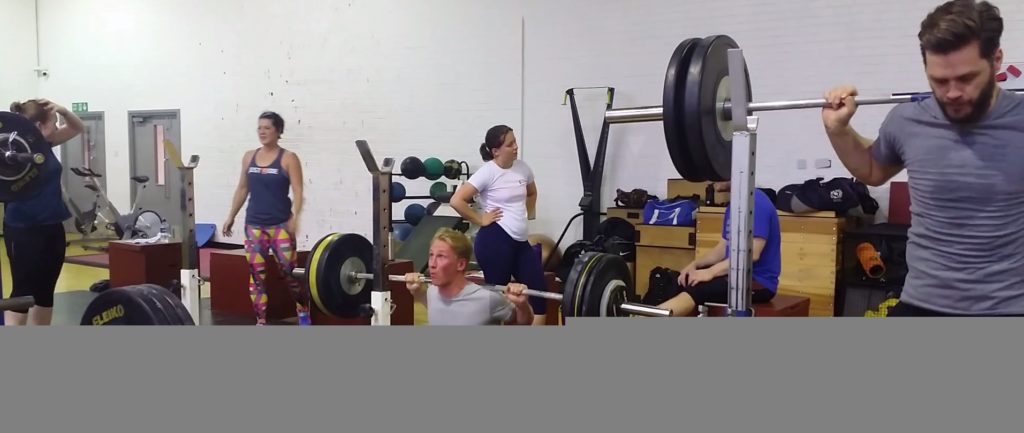
10 – Focus on yourself
It can be very easy in this day and age to find reasons online why you aren’t very good or why you aren’t good enough. If it’s how you look, the money you don’t have or your poverty bench press we can all find something that we don’t stack upon.
In powerlifting, the poverty bench press is the thing that I notice the most that encapsulate this shitty self-defeating mind loop.
The poverty bench thesis – I am shit at bench, my bench doesn’t respond well to training and I don’t like doing bench press.
Reality – You don’t like bench press, you get anxious when doing bench press, often you just want to get it over and done with. You don’t spend as much time as you should working over your form and execution. You give up sooner on heavier sets, you are more likely to rerack before trying again you basically don’t train it as hard. You don’t see much progress or fast progress so you are less motivated to train it. Because you are less motivated to train it you basically double down o the above.
If you didn’t have anyone to compare yourself to or to get downhearted about you probably wouldn’t care that your bench press was x lbs or y kgs. You would probably try to get better at it session to session by adding more weight or more reps. The slower progress comparative to other lifts might perplex you but it probably won’t depress you. And you would probably progress at a pretty regular and reliable rate.
If you only compare yourself to yourself then you can be way more constructive in your thought process and you will probably find you make far better progress as a result. If you find competition motivates you then try and find a space where there are people who are around your level or slightly better it will be a much more motivating and constructive environment if you can compete against an actual person rather than your own lack of self-worth.
11 – Try and get better every set
We have already talked quite a bit on this topic when it comes to deliberate practice. However this is more of a global mindset. You can think about moving the same weight faster, doing the same weight for more reps or upping the weight and keeping your bar speed the same if not moving the weight even faster. It is more than you are constantly looking for things you can improve upon every working set that you do. Not only are you performing mini-assessments between reps in a set. You are videoing and watching your sets looking for feedback you can use going into the next one.
You are setting yourself targets or goals to try and achieve from one set to the next to try and one up yourself. You are constantly looking for ways you can do things better every time you touch a barbell.
This kind of thinking and action will only lead to you getting better as time goes on. Blindly or unthinkingly trudging from set to set isn’t going to improve you it might even make you worse.
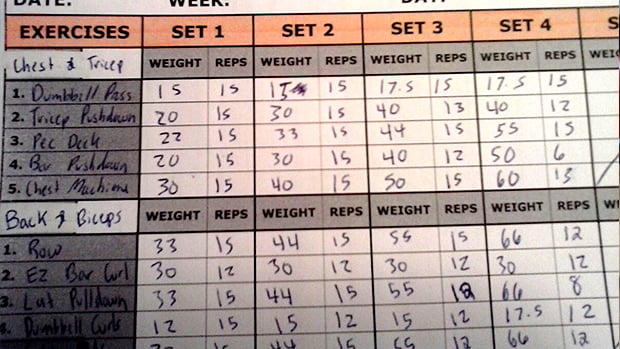
12 – Track your training, and acknowledge the wins and learn from the mistakes.
Do you keep a log of your training? If the answer was no then you should start a training log right this instant. Some people do it via pen and paper, some people use spreadsheets and some people use websites or fancy apps. I keep my training log on sugden barbell you can follow a link to the current one (2020) below.
https://www.sugdenbarbell.co.uk/forum/2020-Log-of-TREN-26070/2#1405448
Training logs allow you to adapt to what you are discovering on an ongoing basis. Some people say you should have a deload every 3 weeks, some people say you don’t need a deload. You should ignore both of these people. An example of how you can use a training log to enhance your training is as follows.
The goal of training should be to produce and adaptative response to the fitness quality you are trying to improve. You should be monitoring this adaptation using predictors of performance and output in terms of strength training the best predictor is an estimated training max. This estimated training max is your guide to your training success if it is going up week to week then you are
1 – Producing enough stress with the training to produce adaptation in the fitness quality you are wanting to increase (strength in a specific lift)
2 – You are recovering enough week to week to keep this adaptation going.
In the event that you plateau in your estimated 1 rep max or even go backward, you can assume two things
1 – you aren’t providing sufficient stress to get a positive adaptation
2 – you aren’t recovering well enough to adapt to the stress provided.
It is likely that if you were getting better at the start of the training block but then stopped getting better than you can probably assume it is the number 2 scenario.
Any training produces fatigue and fatigue is accumulative unless sufficient rest is provided to get rid of it. Yet with too much rest then you run the risk of detraining. Any good training program or cycle will allow you to recover enough from training session to training session to allow progress. However, eventually you will accrue enough fatigue to begin to overreach (under recover cyclically).
This overreach will lead to stagnation and the eventual decrease in performance. With enough time it will turn into overtraining if you don’t allow for enough recovery. Overreach is part of the process of getting better but it needs to be dealt with in the training plan appropriately.
When and where you overreach depends on your training, your frequency, your volume, your genetics, and your lifestyle.
Your training log will create a history of this and will let you make better and informed training decisions. I see when I train hard typically I get better for 5 weeks, I then have a bad training week, then a really good training week followed by a run of bad training sessions.
If presented with this information you should be thinking okay I should be taking a deload every 8th week and expect to have a bad training week in week 6/7. This sort of training information allows you to maximize your time spend training so you can seek adaptation for as long as possible before accumulated fatigue means you need to back off.
Training logs are incredibly important. Keep one.
Marc
